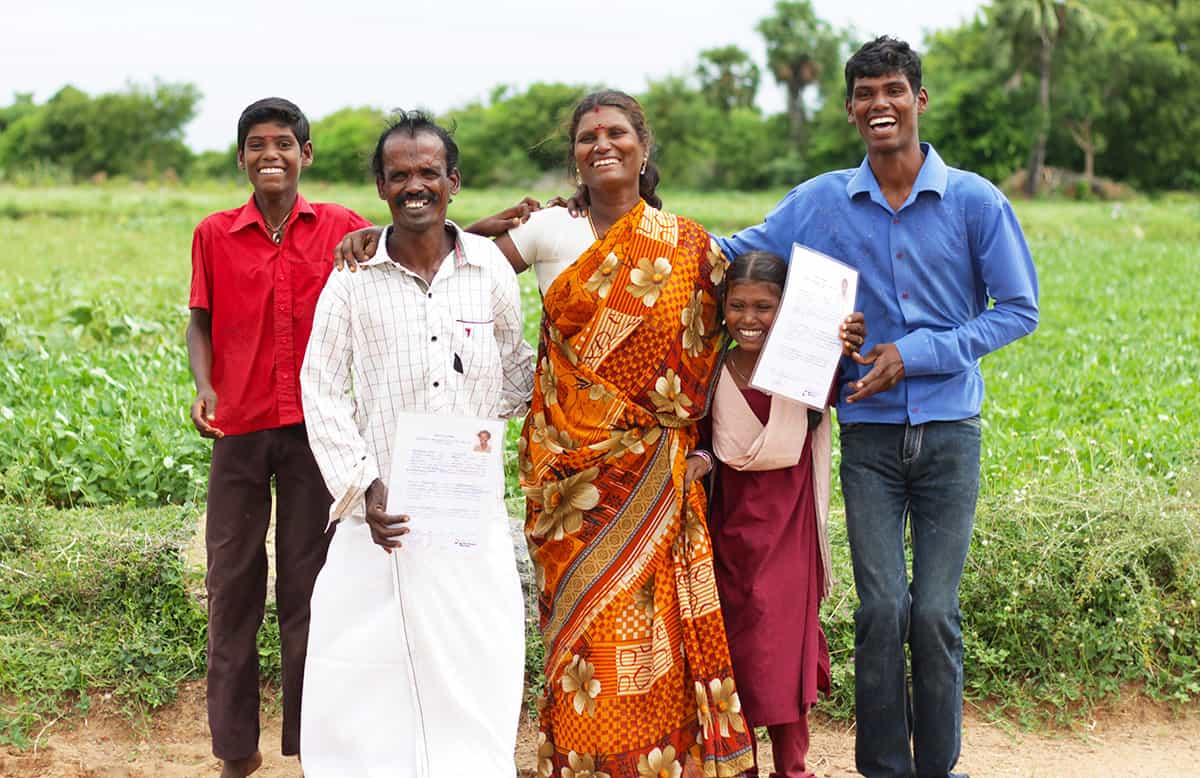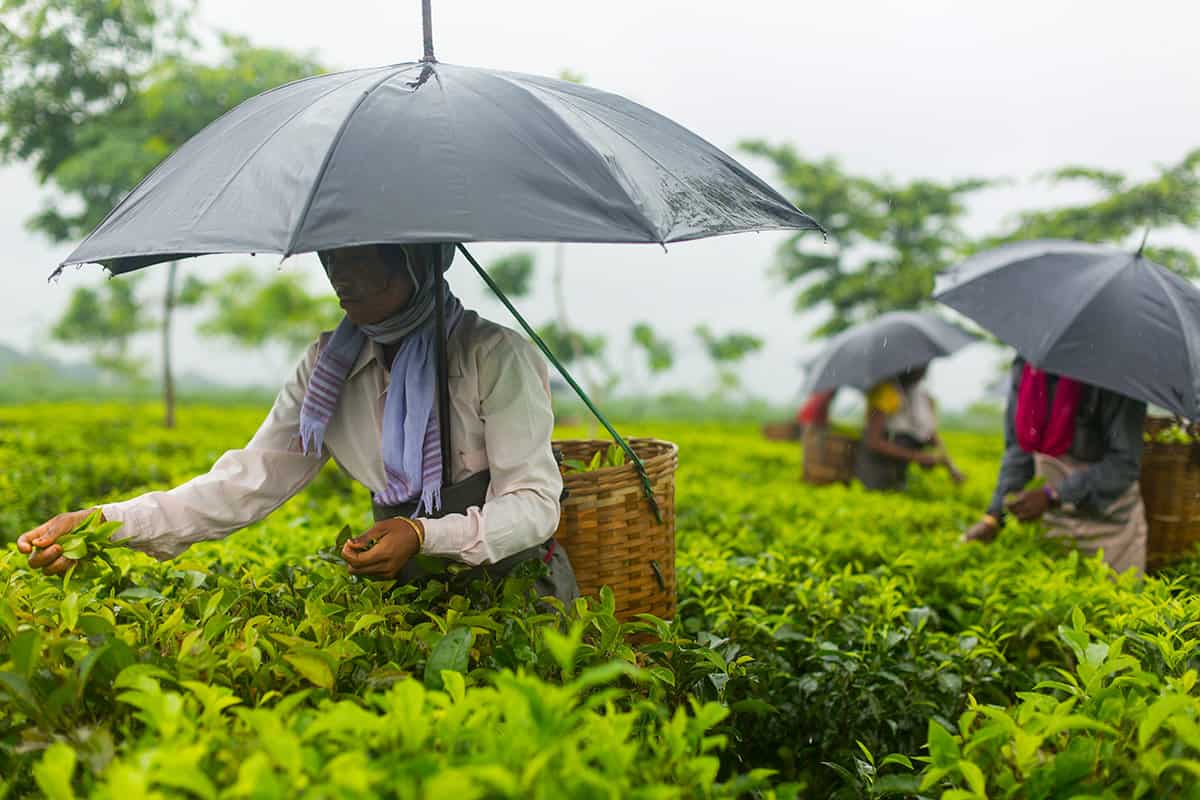My friends thought I was losing my mind. After working my entire career in the non-profit world, I was making the plunge into the big, bad for-profit world. For 7.5 years, I worked for one of the leading organizations fighting violence against the poor (including human trafficking and slavery), International Justice Mission.
For years, I got to tell the stories of my colleagues throughout the world literally rescuing families out of slavery and children out of sex trafficking. My new for-profit colleagues call it “the most noble of causes.” It truly was…and I left it all behind.

A family rescued from bonded labor by IJM and IJM-partners. (Photo courtesy of International Justice Mission)
Don’t get me wrong. I left the non-profit world professionally, but I still wanted my life, my work, to make a difference for people around the world. After growing up in Russia and Kazakhstan as a missionary kid, that was important to me and that was non-negotiable.
That’s why when an opportunity to lead social media at a company committed to sourcing fair trade certified ingredients opened up, I threw my name in the hat thus embarking on my for-profit venture.
The word fair trade was thrown around a lot in the movement to end slavery, but I never quite understood it.
Fair trade is a movement seeking to provide producers and farmers in developing countries with better international trading conditions and contribute to sustainable development in their communities.
But I didn’t really know what that meant until working for a company invested in fair trade certified ingredients. It turns out for a company to use fair trade certified ingredients, it is a HUGE commitment and a very big deal. But the best part is that it’s connected to the success of the business.
Here are a few things I learned about how it works and why it’s a big deal.
For a company to commit to using fair trade certified ingredients, they have to pay three premiums:
- The market premium to make sure the workers are paid fairly
- A premium that goes into investing in the local community that sources the ingredients
- A premium to the fair trade organization (like Fair Trade USA, who gave back $5.5 million back to farmers in premiums) so they can audit the supply chain and ensure that the money is being used properly and the standards are being met adding authenticity and accountability to the model.
When a company commits to using fair trade certified ingredients they are making a commitment to turning their entire supply chain fair trade.
This can be difficult if there’s not a big enough supplier for a company.
Through organizations like Fair Trade USA, communities get a voice.
For example, the tea growing communities elect one male and one female per region of the estate to sit on councils with management to encourage communication and collaboration. In many cases, this is the first time the workers have a voice with management.
These community leaders then help decide how the premiums will be used to advance the common good of the community. This can look like buying medical supplies for the community or investing in saving accounts. Whatever the community decides is most needed.

Workers in a fair trade certified tea garden. (Photo courtesy of Honest Tea)
Wow. After spending almost a decade in the human rights world, I had no idea businesses could also be part of helping to alleviate poverty and advocate for human rights. But now, I can confidently say they can make a huge impact on advancing good around the world.
The adoption of fair trade as a corporate business model is still fairly new in our centuries-old global economy and it will definitely continue to grow and evolve. But as more and more companies are including this in their missions from the very beginning, two things can happen:
- The amount of good they can do only increases as they grow as a business.
- The more organizations committed to sourcing fair trade certified ingredients can continue to improve the systems to benefit communities in the developing world.
My new colleagues think the non-profit world is noble, but I am confident my friends at non-profits would agree that for-profit businesses can be just as noble.







2 Comments |Add a comment
Great post Austin! I buy Fair Trade when possible, but I wish it was possible to buy Fair Trade without getting into “organic” and “gluten free” and whatever the other latest buzzwords are that unnecessarily raise prices and sometimes even make foods worse for us. Keep up the good work – I’d love to see some of the big food producers (and more consumers) get on board with Fair Trade without having to go for all the other stuff.
Thanks for the comment, Josh, and for your encouragement.